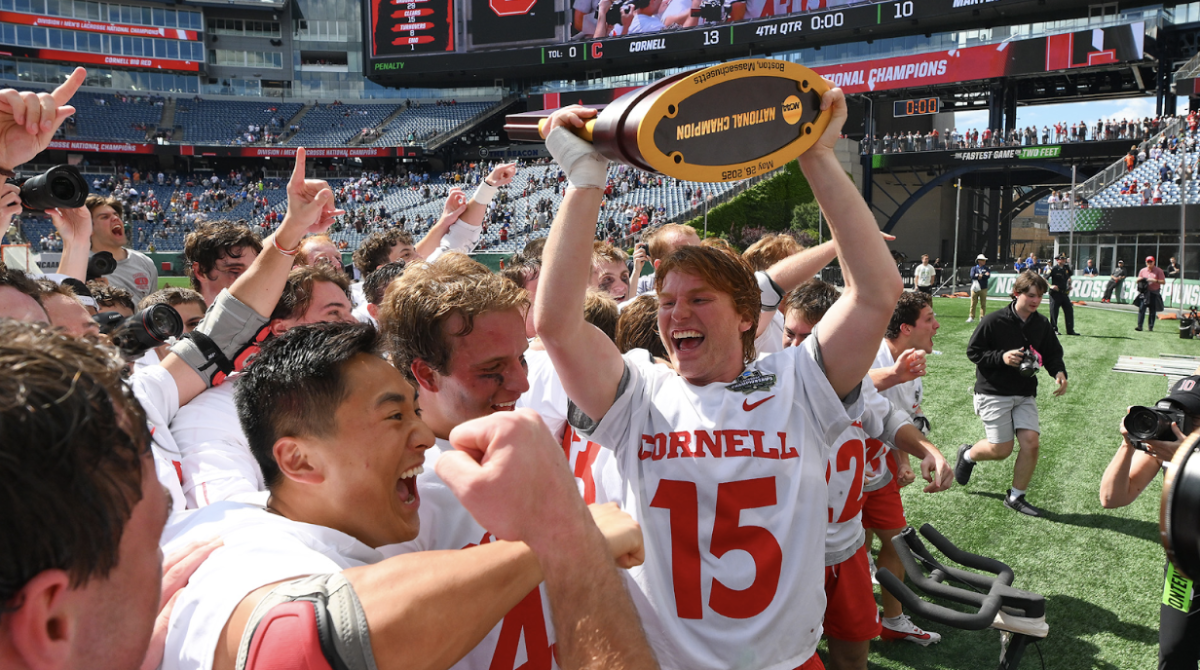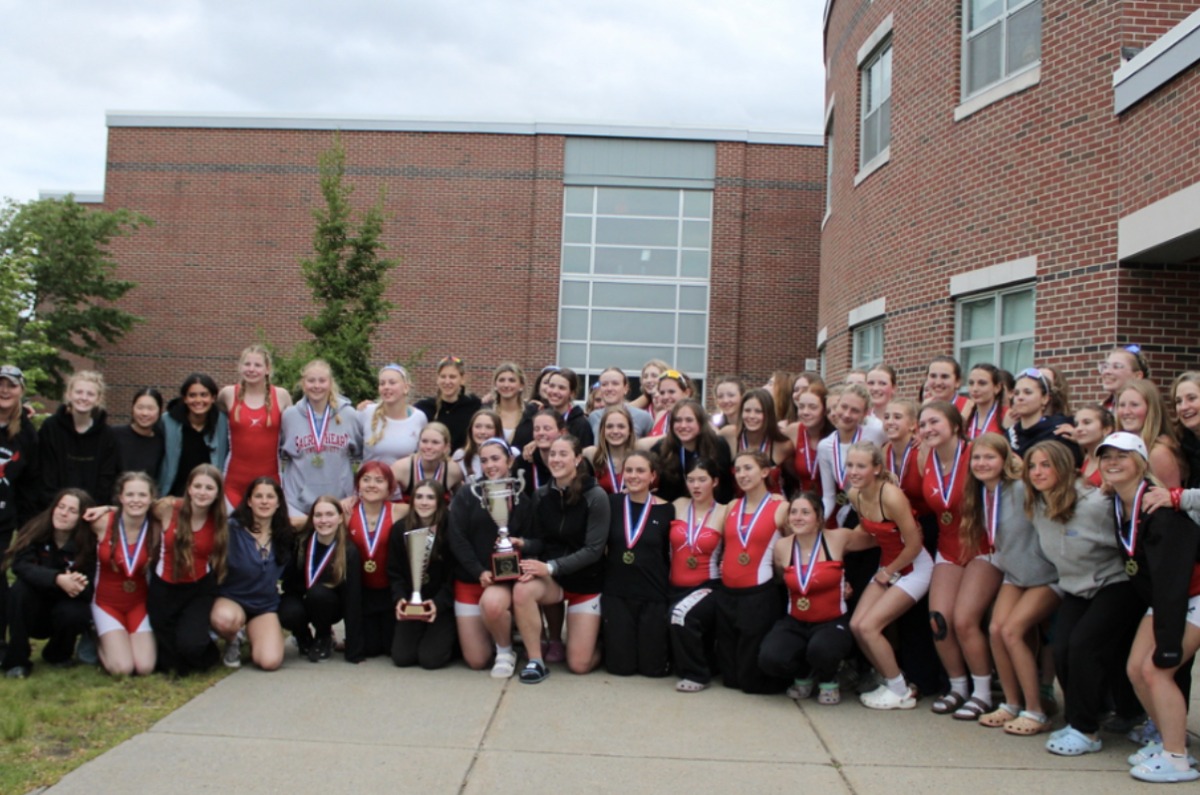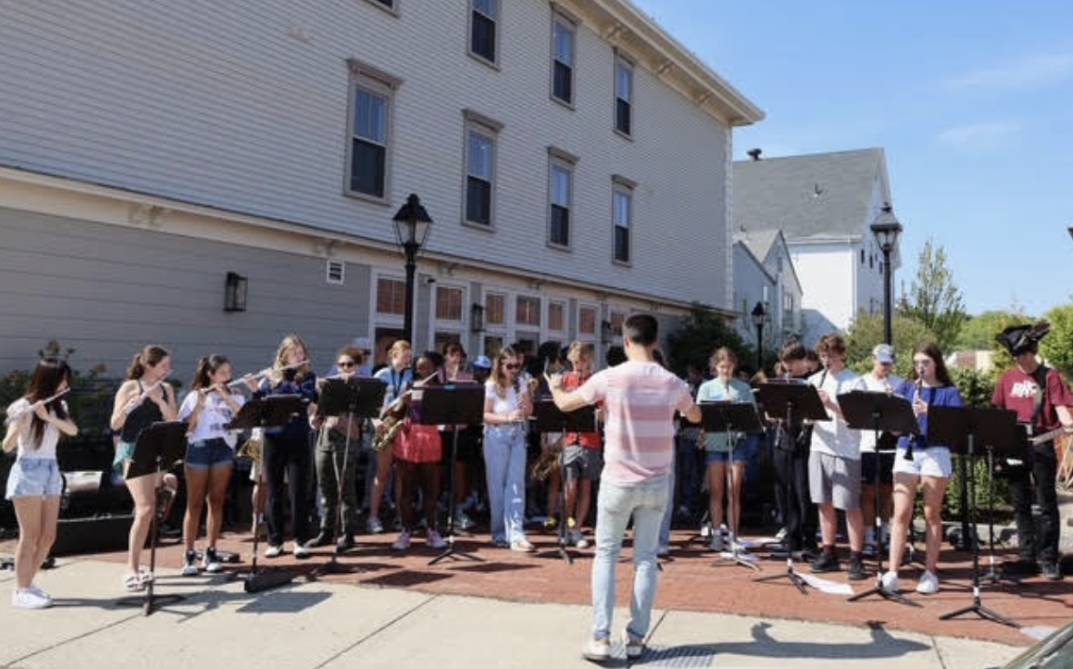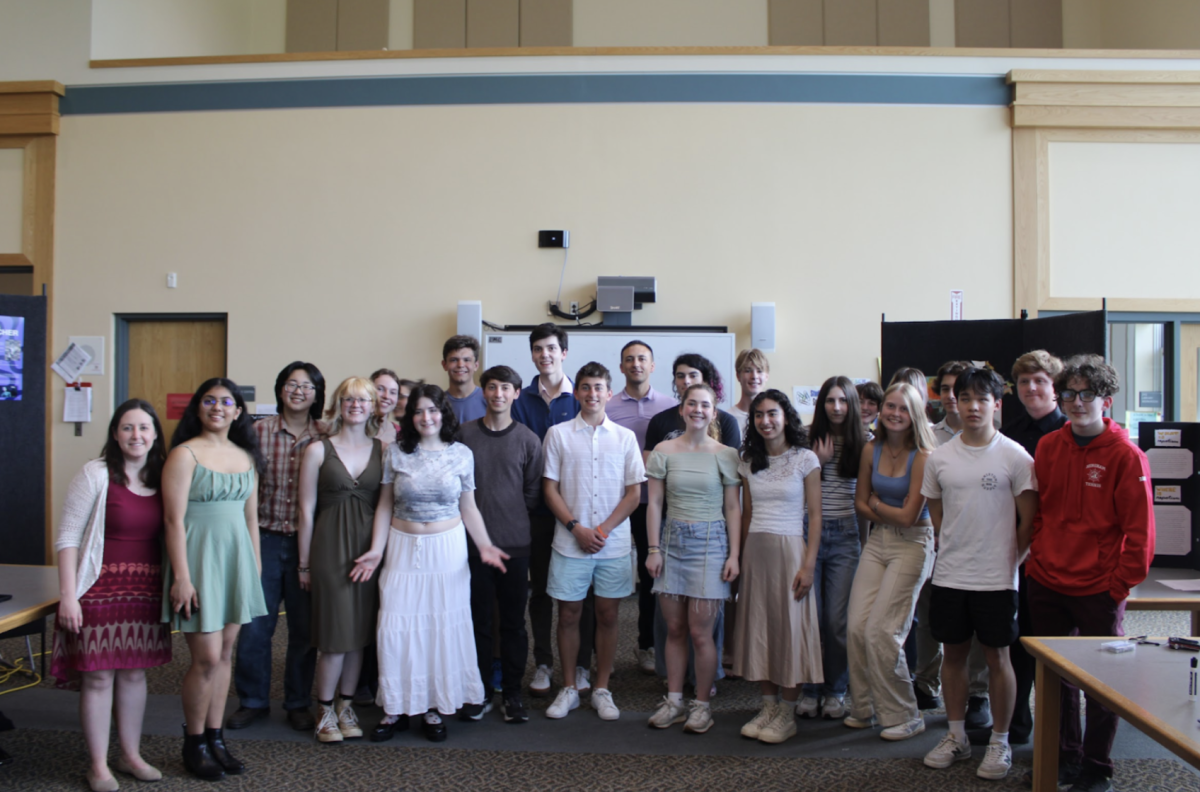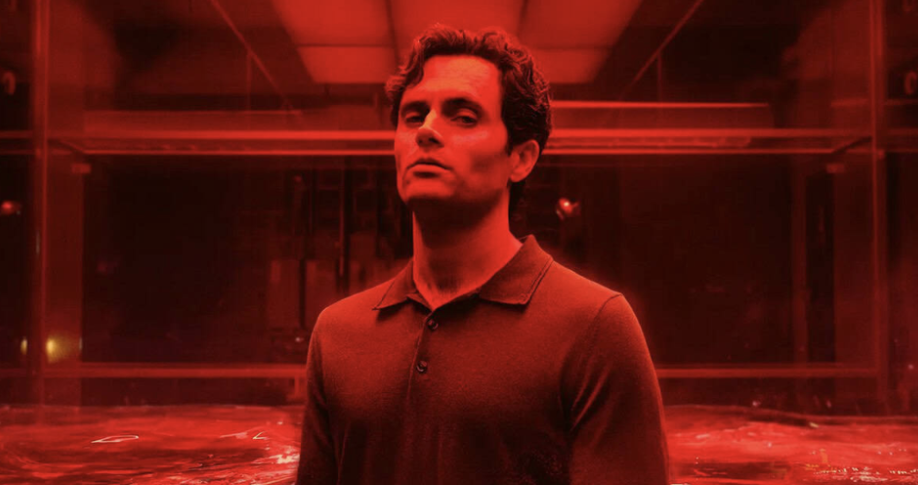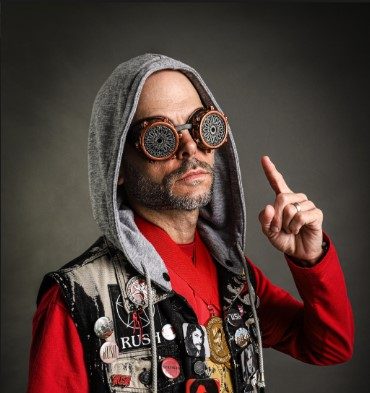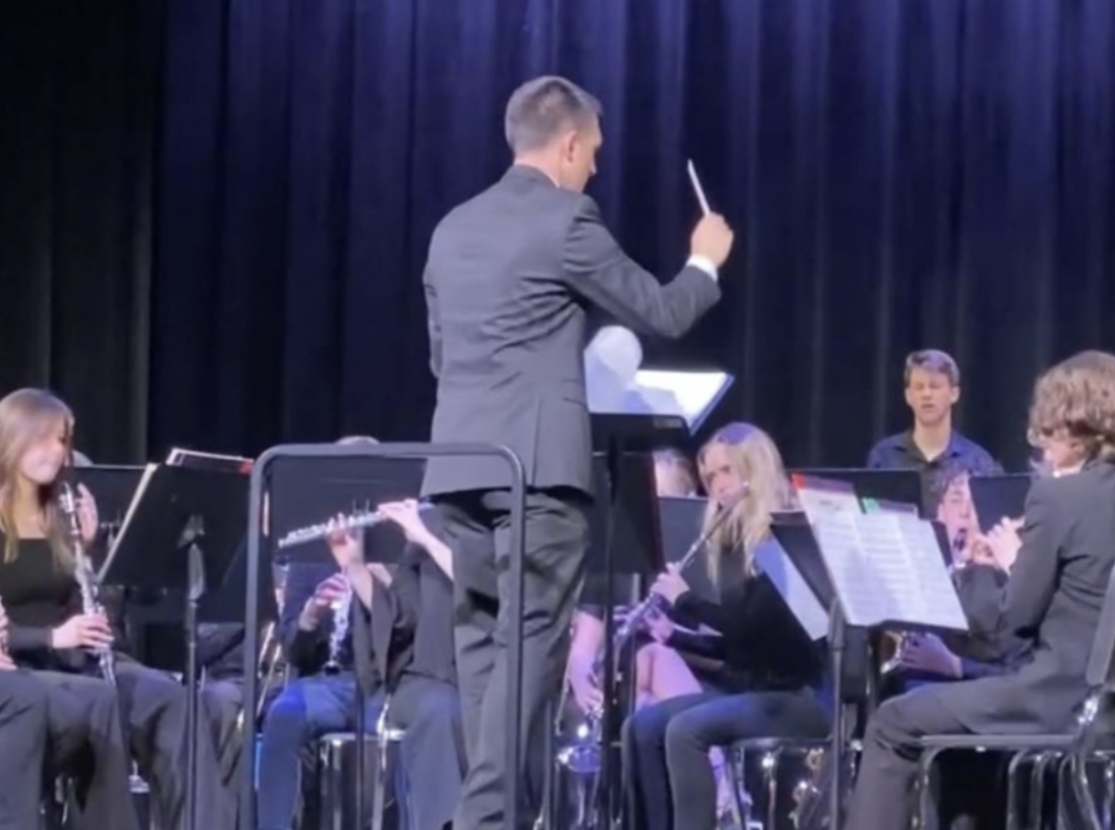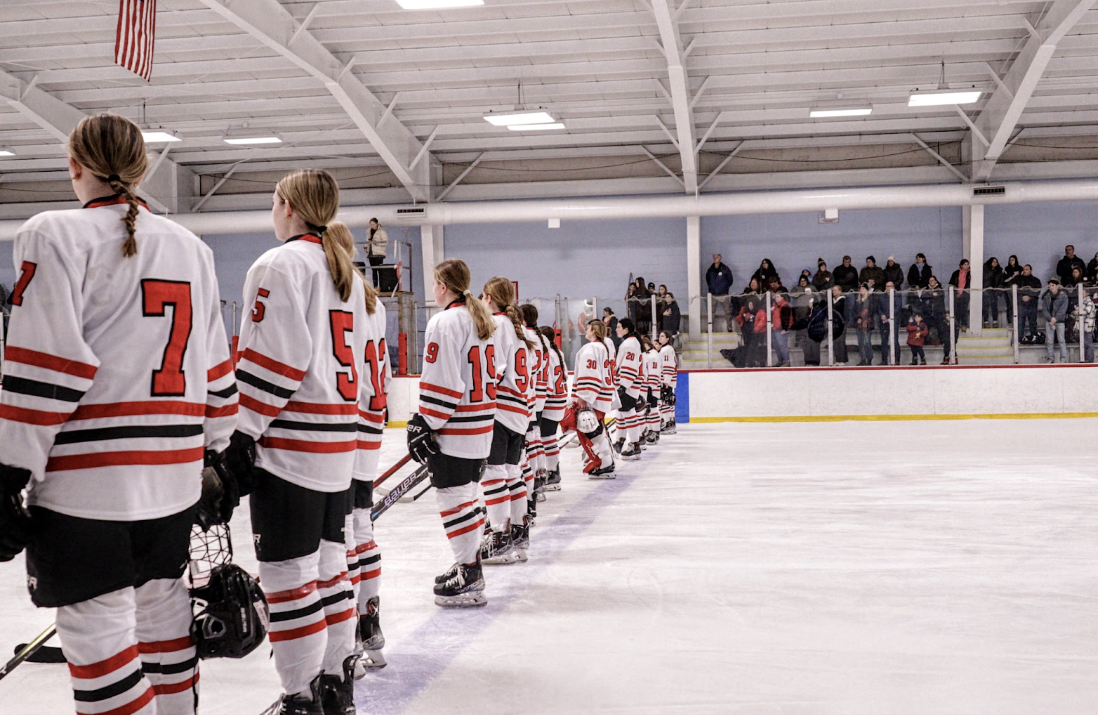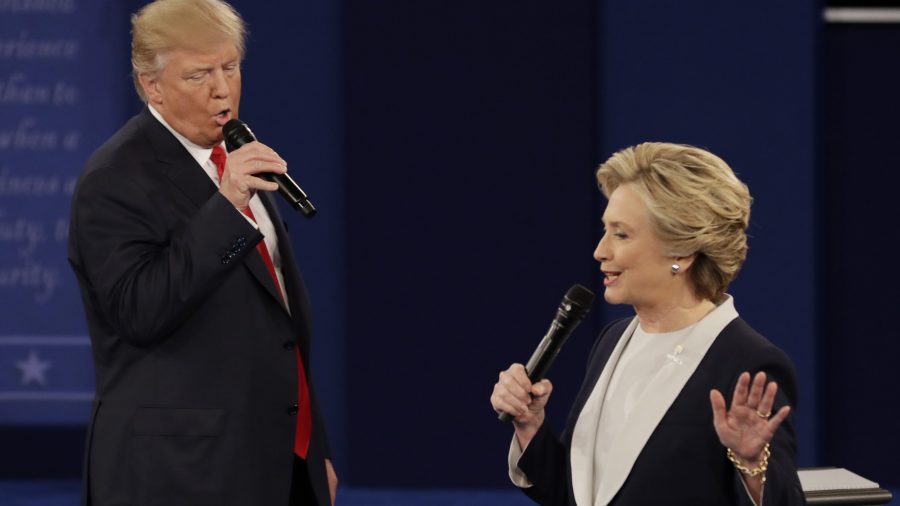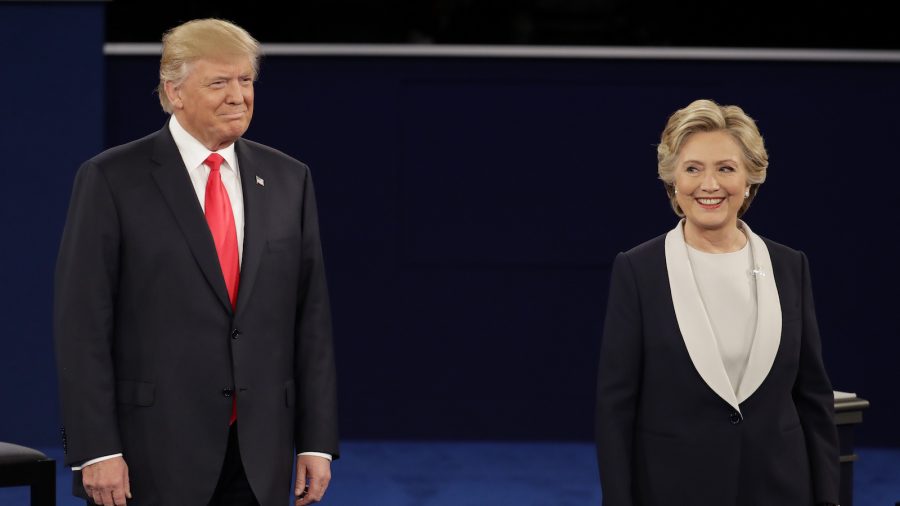The Second Presidential Debate
Trump interrupts Clinton as she attempts to speak during the second debate.
October 16, 2016
On Sunday, October 10 at 9:00 PM, presidential hopefuls Hillary Clinton and Donald J. Trump took to the debate stage once again. The second debate was a town-hall style debate in which the candidates answered questions directly from the audience and questions asked online. It was moderated by CNN Anchor Anderson Cooper and ABC news reporter Martha Raddatz.
The second debate lacked the substance of the first, and placed the two candidates in a more confrontational environment. While Hillary Clinton had an objectively strong performance, Trump’s relative success in attacking Clinton and ability to shift attention from his major controversy made for a muddled verdict. The second debate was therefore in most regards a tie.
The debate occurred as Trump was desperately trying to recover from latest and most dire scandal: on Friday night, the Washington Post released videotapes that captured Trump bragging about sexually assaulting women.
As Trump lost major endorsements and Speaker of the House Paul Ryan said he would no longer campaign for the nominee, the candidate issued a rare apology. However, he also attempted to minimize his scandal by asserting that Democratic nominee Hillary Clinton’s husband, Bill Clinton had done far worse to women.
The day of the debate, Trump made an appearance with four women who have accused Bill Clinton of sexually assaulting them, though the cases have never been proven. He then brought three of the four women to the debate itself, placing them front and center in a bid to remind the American people of Bill’s alleged abuse.
This move, of course, set a tense tone going into the debate itself. When Clinton and Trump refused to shake hands at the top of the night, it was clear that the relative respectfulness of the first debate was gone.
The night began with Clinton reiterating a constant theme of her campaign: setting aside divisiveness while celebrating diversity. The candidate called for unity for the sake of the children, hoping to shed political divides. As she said, “I want to be the president for every American.”
While Clinton obviously attempted to appeal not only to Democrats but also to disenchanted Republicans, Trump remained a largely unchanged candidate. His first statement was erratic, as he criticized healthcare, the Iran deal, and the violence of our inner cities before finally returning to his favorite campaign slogan: that he will make America great again.
However, moderator Anderson Cooper was quick to confront Trump about the aforementioned tapes that were released Friday. Trump apologized, again dismissing the entire scandal as “locker room talk”. The nominee then quickly tried to minimize his guilt by drawing attention instead to the horrors of ISIS, finally concluding by claiming, “Nobody has more respect for women than I do.”
Clinton, when given a chance to respond, ripped into Trump. She made the distinction between him and other Republicans, saying he is unique in that he makes her question his fitness to serve. She also reminded the nation that this should not be a surprise to voters, as he has many times targeted women and other vulnerable sections of society on the campaign trail. She explained, “…this is who Donald Trump is.”
Clinton also put forward a line that she used throughout the night, to counter Trump’s “make America great again”. She proposed, “America is already great, but we are great because we are good.”
Unlike in the first debate, Trump was able to recover from this beating. He used this opportunity to launch his main line of attack throughout the night, musing, “It’s just words, folks. It’s just words.” He went on to explain how unlike Clinton, he will help the inner cities recover, saying that over her extensive political career, Clinton has “…done a terrible job for African Americans.”
This idea that Clinton has never done anything of substance during her career was a consistent theme of Trump’s statements throughout the night, and remained one of his strongest attacks of the debate, even if Clinton was somewhat successful in debunking it later on.
The night took a personal turn when Trump was asked when he changed from the misogynistic man in the 2005 videotapes to the respectful man he claims he is today. Trump immediately changed the focus of the question, calling Bill Clinton the most abusive man in the history of American politics.
He then attacked Hillary for defending an accused child rapist in 1975 and laughing at the acquittal of the man, a claim later proven false, as she never laughed at the victim or the verdict, but rather at other specificities of the case. Trump concluded that Hillary should be ashamed of herself, to a bout of applause from the audience.
Clinton failed to counter his points with real substance, instead trying to live up to Michelle Obama’s example: “When they go low, you go high.” She then explained that Trump never fully apologizes to anyone, including the Khans, DNC speakers who lost their son to the war in Afghanistan that Trump attacked, and Obama for starting the “birther” theory that the president was not born in the United States.
Trump took this opportunity to try and appeal to Democrats who stood firmly with primary candidate Bernie Sanders, accusing Hillary of rigging the primaries against him. Trump then made an unprecedented proposal: If he is elected, he would employ a special prosecutor to investigate Clinton’s actions as secretary of state, because people’s lives have been destroyed for doing far less.
Trump seemed to gain confidence after this statement, refusing to accept Hillary’s apology for using a private email server and accusing Congressmen involved in the scandal of letting Hillary “pull strings”. His increasing confidence throughout the night, while often strengthening his statements, also often caused him to interrupt his opponent. As Hillary restates that there is zero evidence that the classified material in her emails ended up in the wrong hands, Trump was quick to interject with snide comments.
The moderators nonetheless pushed the discussion forward, allowing each candidate to outline their plans for healthcare reform. Clinton put forth a detailed plan of how she will restructure Obama’s Affordable Care Act to bring the costs of insurance down and make it easier for small businesses to thrive on the plan.
Trump contrasted this by calling Obamacare a “disaster” and proposing to repeal and replace it with a better plan, including allowing for more insurance companies to compete in every state. However, he failed to expand as to what his exact plan would be, only offhandedly assuring the American people that they would be “protected.”
Trump’s increasing confidence failed him on a question about how he would combat Islamophobia in the United States. After calling it a “shame”, he jumped into a completely contradictory idea that Muslims are not reporting extremism in their communities, falsely claiming that many people saw the explosive devices that police found in the apartments of the San Bernardino shooters. He concluded by saying that Clinton refuses to call it radical Islamic terrorism, as therefore will not be able to solve the problem.
Clinton called Trump’s rhetoric dangerous, and quickly made the distinction between real Muslims and radical jihadists. She claimed that she wants to live in an America where Muslims are welcome members of society.
When asked about his immigration policy, Trump gave no verdict on whether he still supported a full ban on Muslim immigration, instead calling for “extreme vetting” because of the possibility that radical terrorists are among the immigrants.
Clinton said that vetting would be “as tough as it needs to be”, but stressed the need for immigration, invoking the viral image of the bloodied Syrian toddler sitting in an ambulance in the besieged Syrian city of Aleppo.
Clinton was successful is dodging questions about a new leak of emails, in which she stresses the importance of having “private and public opinions.” She explained that she was referring to Lincoln in the speech and diverted the attention to the Wikileaks hack, highlighting the imminent threat that Russian hackers pose to our democracy. She also linked Trump to Russia, questioning why Russia is working so hard to hack the election in Trump’s favor.
Trump quickly made it clear that he had no ties to Russia. He also ensured the American people that he is indeed paying “hundreds of millions of dollars of taxes.”
On tax reform, Trump vowed to lower tax rates from 35% to 15% and to lower taxes on corporations to help American businesses thrive. He delivered a strong bottom line, claiming that Hillary Clinton will raise taxes, and he will lower them.
Hillary quickly said that she will not raises taxes on anybody except the very wealthy, while simultaneously saying that Trump would end up raising taxes on the middle class, even when he has never paid federal income tax. However, her detailed plan failed to drive home her point with vigor to match Trump, whose simple answer resonated more with audiences.
Trump then fully admitted to taking advantage of a tax loophole to not pay federal income tax, before launching into another attack on Clinton, repeating his accusation that she is all talk and no action.
In response, Clinton outlined her extensive political career, from helping children and orphans to helping rebuild after 9/11. Trump, in response, called her time as a senator a “disaster.”
When Clinton outlined her plan for Syria (including investigating Syria and Russia for war crimes), this pattern continued, with Trump calling her foreign policy a “disaster.”
Trump flat-out disagreed with his running mate Mike Pence over what to do in Syria. He went on to explain that he wants to work with Assad, because though the authoritarian dictator accused of war crimes is horrible, at least he’s killing ISIS (though Assad has actually avoided targeting the group).
When asked to clarify about his foreign policy, Trump began to descend into the incoherence that plagued his last debate performance, attempting to make a point about why the United States should have more sneak attacks.
Clinton, on the other hand, advocated for keeping boots of the ground and possibly arming the Kurds, again proving her experience over Trump.
The candidate then clashed on their devotion to the presidency, with Trump painting Hillary as a hateful and divisive candidate who will not change anything. Clinton shot back with criticism of Trump’s disobedience, his impulsive tweeting, and his effect as a role model on children.
Personal attacks increased as the night progressed, with Trump saying Clinton has “special interests” and claiming she is the reason the second amendment is “under siege”. Clinton trashed Trump on his lack of experience and said his Supreme Court picks would reverse Roe v. Wade and the marriage equality decision.
The last major question was by asked by soon-to-be-memefied Ken Bone and was related to energy policy. Trump said our energy companies are “under siege” and advocated for “Clean Coal”, an oxymoron in and of itself. He painted himself as the saviour of mining industry and the only man who can pay back our national debt.
Clinton had a vision of the United States as a “clean energy superpower”, a revitalized coal country, and an energy-independent America.
A tumultuous debate ended with each candidate obligated to point out one thing they respected about one another. Clinton praised Trump’s children, while Trump, funnily enough, praised Clinton’s stamina. The night ended with a handshake, but the resentment was palpable.
The second presidential debate gave Trump an opportunity to divert attention from his sexual assault scandal, one he took and largely succeeded at. Clinton delivered a strong performance but was constantly being attacked, and seemed more vulnerable and shifty during the second round. Therefore, it was in most regards a tie.
Perhaps HHS Senior Zach Lytle best explained the verdict, saying, “Trump won, but he won by horrible sound bytes.”
Other HHS students had differing opinions, with freshman Nick Sullivan said Trump had a better debate overall. He also believed that the moderators were biased against the Republican nominee, and at times it was like he was in a debate with them.
A CNN/ORC poll had 57% of people saying Clinton won the debate, to Trump’s 34%. However, before the debate, 58% of the people being polled were already Clinton supporters.











